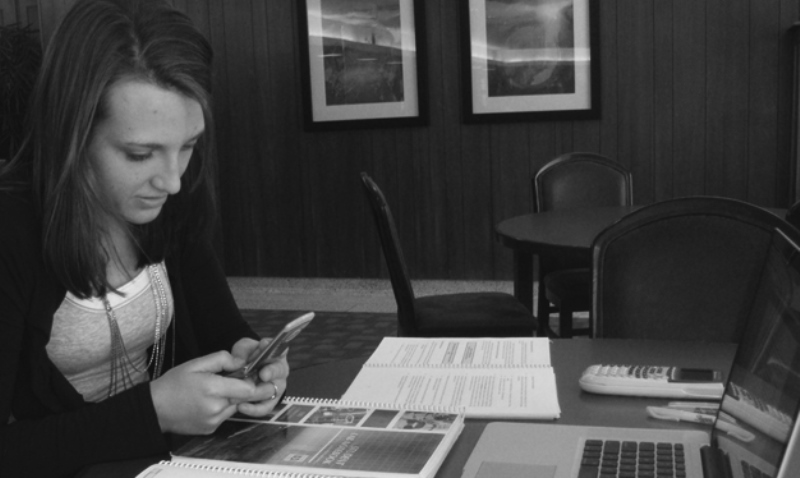It is interesting just how much someone can learn about you when they learn about your relationships. From childhood to adolescence and consequently, adulthood, your social ties form an integral component of your mental and emotional well-being and are inextricably linked to your behavior. From your behavioral responses to people and situations to the way you perceive yourself and the world around, the indelible imprint your relationships leave on your psychological slate has an undeniable impact on your approach and outlook towards everything, including your subsequent relationships.
Needless to add, then, that the thinking patterns invoked by your experiences repeatedly affect the way you think and understand relationships, including those of a romantic nature. However, some of these thinking patterns can prove to be an impediment on your path to achieving a healthy romantic relationship. They consistently interfere with your dating approach and ruin your chance at love, even as they lead you to believe you have a real shot. In fact, you’d be surprised to know how your most pressing relationship troubles in life are inevitably tied to these patterns of thinking that are deemed ‘natural.’

Image source: Pixabay, under Creative Commons License
Suggested read: Signs of a healthy relationship
Jennice Vilhauer, the director of the Outpatient Psychotherapy Treatment Program at Emory Healthcare and author of Think Forward to Thrive: How to Use the Mind’s Power of Anticipation to Transcend Your Past and Transform Your Life, outlines these ‘common’ yet fatal thinking patterns and exhorts us to step back and reassess our witting surrender and victimization to them. She expounds on the numerous ways these thinking patterns (commonplace in early phases of dating) wreck one’s chance at love, by pushing people away instead of bringing them closer. If you are wondering if you, too, have been an unknowing victim of these mental mistakes, here’s a list you can use to confirm your suspicions:
1. Jumping ahead

Image source: Google, copyright-free image under Creative Commons License
The problem- How many times have you been on a fantastic first date and ended up imagining what your kids would look like, after he dropped you home? Don’t shake your head in vigorous denial because no matter how vehemently you refuse to have indulged the bout of sappy romanticism, the tendency to imagine an ‘ideal’ life with a ‘potential’ new partner is almost universal. This tendency is powered by our brain’s biochemical machinery that activates the feel good neurotransmitter dopamine as soon as it anticipates a favorable outcome.
The expectancy of rewarding experiences by thinking of what ‘could be’ with the new person can trigger strong chemical reactions in your brain, which, in turn, can wash you over with a surge of positivity. While the brighter side of the process is that it tends to put you in pursuit mode (because you recognize some potential in what ‘could be’) and ensures you are proactively making efforts to build a connection, the downside is an overtly emotional attachment with the ‘vision’ in your head that can trigger intense emotional responses and scare the other person away.
While the tendency to imagine a possible future with someone new isn’t a bad thing per se, it can create too many expectations on the basis of an ‘imagined’ reality that may or may not come to be. Approaching a new, budding romance with as many expectations or levying the pressure of these expectations on it is more likely to kill your chance at love than breathe life into it. It is important to understand that projecting your own ‘fantasy’ or ‘vision’ of a probable future on someone or something isn’t going to help you build a strong foundation for future. It will only wreck your chances of being fully ‘present’ in the present and understand your chemistry for what it is, because you are constantly dwelling of what ‘could be.’
Suggested read: Setting boundaries in an avoidant relationship
The solution– Whenever you feel like you are jumping ahead, retreat and remind yourself that unless you have specifically spoken about being exclusive and taking things to the next level, you are still in the ‘dat(a)ing’ phase- where your dating experiences enable you to gather data about compatibility. By allowing yourself to be swept away into a fantasy land, you are increasing the likelihood of collecting erroneous data or skipping important observations altogether- that may have serious repercussions later. So, slow down your impulse to imagine what ‘could be’ by focusing on ‘what is,’ so you have all the ‘data’ you need to know if there, indeed, ‘could be’ anything between the two of you.
2. Fearing you won’t get what you want

Image source: Google, copyright-free image under Creative Commons License
The problem– Sometimes, we tend to sell ourselves short because we do not believe that we can get what we want from our romantic relationships. We settle for less because we are more intent on keeping what we can get rather than waiting out for what we really want and have nothing in the interim. This lack of faith in ourselves and our worthiness of getting what we believe we want and consequently, deserve leads us down a never-ending spiral of compromise and resultant unhappiness. By settling for less than what we wish to sign up for, we hand out major discounts on our self-worth that are incapable of rendering the ‘return’ you wish to draw from your investment in a relationship.
Slash through the jargon and understand that relationships do work on similar economic principles because they are, in fact, a give-and-take equation. For instance, if you wish to hold off being physical until you are in a committed relationship but are too afraid to articulate the same or exhibit behavior that show that you are willing to settle for less, you have nobody but yourself to blame for your own discontent in the relationship. Settling for less because you fear you might lose what you have for something you want to have, but may or may not get immediately- is a foolhardy move.
The solution- Take the time to know what you really want from your relationship and then, draw a list of behaviors that are consistent with the efforts you can make for getting what you want. If you think you are falling short, pull the strings and start making efforts to actively pursue your relationship goals.
3. Anticipation of the worse if your fears came true

Image source: Pixabay, under Creative Commons License
The problem– While the fear of not getting what you want is a universal one, anticipation of the worst possible outcomes upon the realization of your fears is also a legitimate cause of concern. People tend to worry so much about what’d happen if their fears were realized, that they not only sell themselves short but also tend to avoid any incidents that may confirm their belief.
For instance, if you are dating a someone who isn’t ready to commit right away and want to take things slow, you may not only have sold yourself short in allowing for the same (when what you really want is a committed relationship) but you also avoid the ‘where is it going’ conversation because you fear it may result in a fallout. In doing so, you are not saving your present but ruining your future as well. Because even though your partner may have spelt out his terms at the onset of a relationship, you have all the right to ask him/her where the relationship stands after you have hit milestones together. In choosing to avoid the intolerable pang of disappointment in the present, you are only amplifying the hurt you shall bring upon yourself in the long run- if you do not iron out the creases right away.
Suggested read: How to go about setting boundaries in an addictive relationship
The solution- Not only is it important to know what you want from your relationships but it is equally important to recognize your self-worth and determine if you are allowing people to get away with more than you can bear to offer. If you are confident in your skin and know what you deserve, you shall not rely on other people or situations to validate your own worth and avoid being overtly attached to someone who is willing to slash a major chunk from your esteem. You need to remind yourself that it is okay for you to decide what you want and equally alright to know that you’d be okay if you didn’t get it. You do not, however, have to settle for less in any case.
4. Pressure of proving your worthiness

Image source: Pixabay, under Creative Commons License
The problem- Dating is often viewed as a competition of sorts where you oust other potential suitors to prove your own worthiness of being a ‘desirable partner.’ However, we need to oust this Tinder-esque definition of dating and understand its negative influence on our own sense of self. In allowing someone else the agency to validate your worth, you shift the locus of control from yourself to someone else- thereby, putting ourselves in a powerless position susceptible to compromise.
The solution- We need to change the way we understand dating to regain perspective- and learn that ‘choosing’ someone is a function of someone wanting to be with you as much as you want to be with them. You own the power of choosing your partner and assert the same, and leave the rest unto the other. Their approval or rejection is no measure of your own worthiness- but simply, an execution of their own power of choice.
It is important to remember that all relationships allow for learning, growth and experiential wisdom- and that it is our onus to identify the roadblocks and kick them to the curb. Sometimes, we tend to be our own enemies without realizing it. Learning to take a step back, introspect and identify the thought patterns that hold us back from achieving our relationship goals so we can take the time and make efforts to salvage the relationship and restore our chance at love needs practice. And the best time to begin is NOW.
Featured image source: Pixabay, under Creative Commons License












